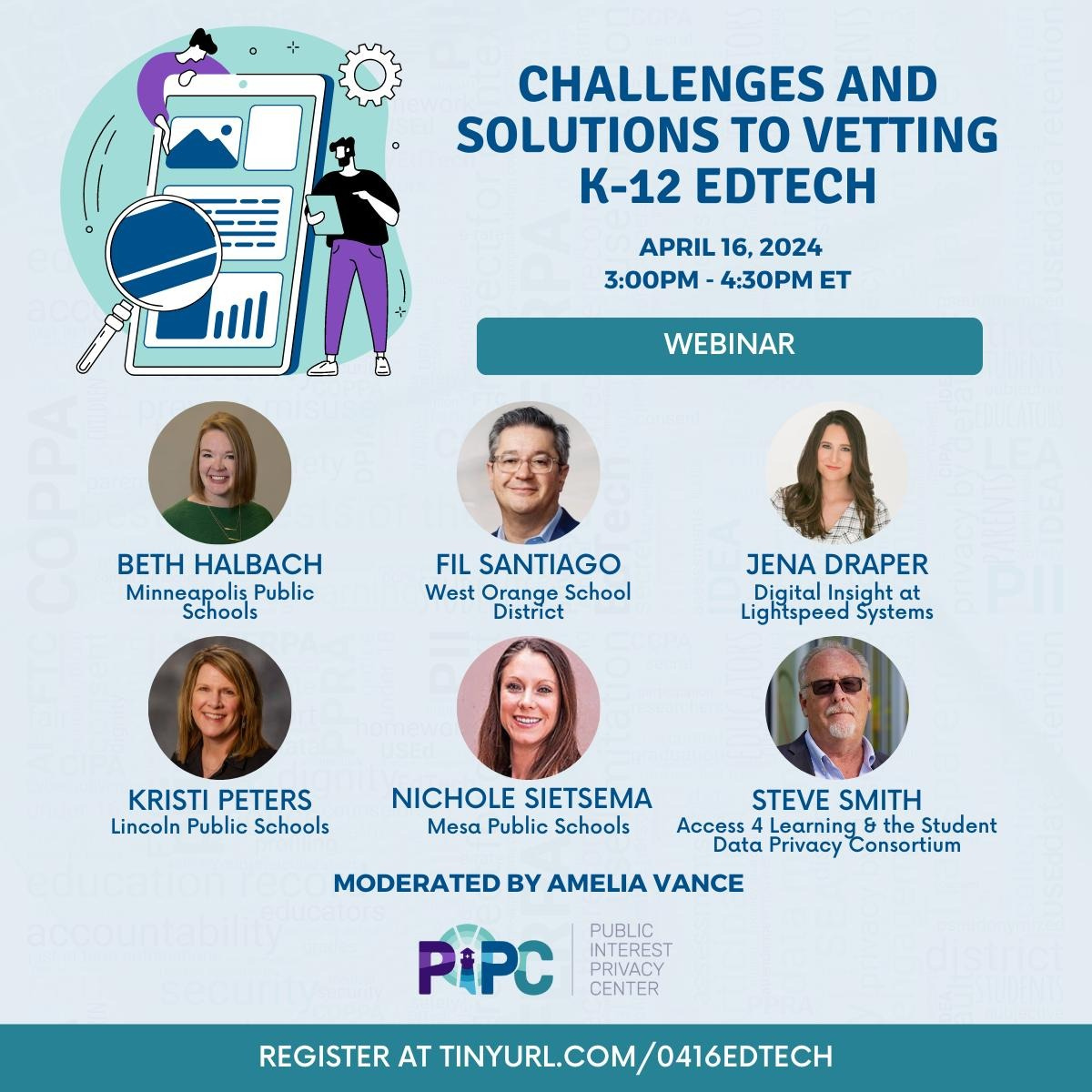Public Interest Privacy Center Releases K-12 Privacy Policy Guide
“The K-12 Privacy Policy Guide: How to Quickly Spot Red Flags” will help educators effectively review privacy policies and make informed decisions about edtech they request to use with their students.
The Public Interest Privacy Center (PIPC) released a new resource today entitled “The K-12 Privacy Policy Guide: How to Quickly Spot Red Flags.” This resource is designed to help educators effectively review privacy policies and make informed decisions about the technologies they request to use with their students.
“School staff are facing an overwhelming number of requests to evaluate and approve edtech products, many of which lack sufficient safeguards to protect student data,” said Amelia Vance, President of PIPC and Chief Counsel of the Student and Child Privacy Center at AASA, the School Superintendents Association. “We developed this resource to help streamline the vetting process by empowering educators to do a quick first-round-of-review, looking for common red flags in edtech privacy policies before submitting the product to be officially vetted by the school.”
This new resource, created thanks to support from Lightspeed Systems, helps demystify the vetting process by identifying common provisions in privacy policies that raise concerns for schools. By using this resource to do a 5-minute review of a product’s privacy policy, teachers can identify whether or not a product will likely pass muster and warrants a closer look by the school. The guide covers 8 key data management topics, including:
Data Sharing: Is student data shared with third parties?
Data Usage: How is student data used?
Data Ownership: Who controls student data?
Data Retention: How long is student data stored?
Security: How is student data protected?
Updates and Changes: How will schools be informed of changes to the privacy policy?
Data Collection: What student information is collected?
For each topic, the resource includes what language and practices in privacy policies would be considered a “red flag.” Each section also includes related search terms that help make privacy policies skim-able and easy to review.
"PIPC's latest privacy resource is an excellent starting point for educators looking for a grab-and-go resource that can help them quickly run an initial analysis of the privacy policies for the various technologies they may use with their students,” said Noelle Ellerson Ng, Associate Executive Director of Advocacy & Governance at AASA, The School Superintendents Association. “We are happy to share the resource with our members, and encourage them to watch the related webinar."
But that’s not all!
To complement this resource, PIPC is excited to offer an accompanying webinar featuring experts in education, data privacy, and industry. The webinar will take place on Tuesday (4/16) from 3:00-4:30 PM ET and consist of a discussion about the current challenges local education agencies face when vetting edtech as well as practical solutions. This webinar will serve as a valuable resource for those seeking to navigate the complex landscape of edtech and data privacy, and we encourage all interested parties to join us. Register here.






